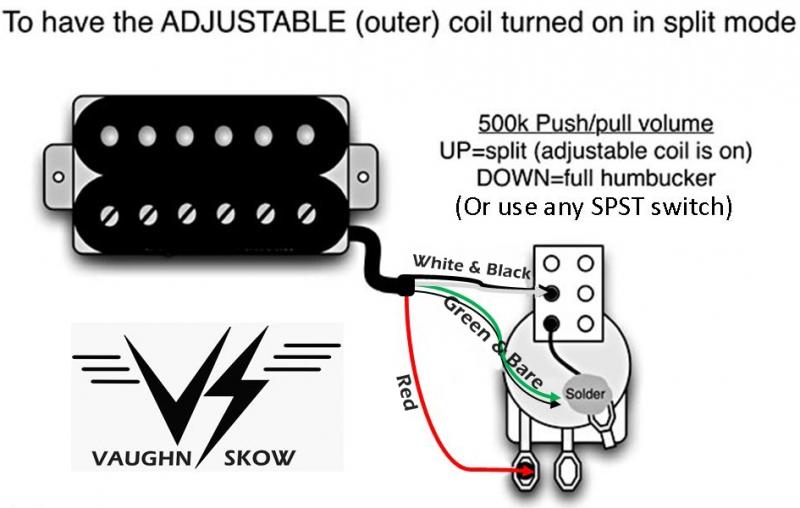Your Cart is Empty
NOW FREE SHIPPING TO 48 CONTIGUOUS UNITED STATES ON ALL ORDERS!!!
Guitar Pickup Coil Tap vs Coil Split, the Definitive Answer
by vaughn skow December 03, 2015 2 min read
Google “coil tap vs split”;
by the time you get to the “v”, it’ll fill in the rest for you … it’s THAT common a question! The two terms “coil-split” and “coil-tap” are often used interchangeably, but they are very different. So, what is the difference? Let’s give the definitive answer right here and right now! Don’t worry, it’s simple, and this won’t take long.
Coil Split:
this is what most folks are thinking of when they consider these terms. It is simply when a dual-coil pickup (i.e. a humbucker), has its two coils, which are usually wired in series, split into individual coils … and generally one of those coils is “shut-off” by shunting it to ground. The result: a single-coil pickup!
Here I feel I need to mention this:
most humbuckers sound thin and downright terrible when split into a single-coil. That’s because each individual coil was not designed to operate by its self. The one exception I am aware of is my Custom PAF humbuckers. I imagine there are others out there, but I am not aware of them. Here is a picture of the coil-split diagram that comes in the box:
Okay, on to coil-tap:
this is when the coil is wound to a certain number of turns and a lead is attached … a “tap” if you will … and then the coil is further wound until another lead is attached, another “tap”. I make these type of custom single-coil pickups for the bridge position in a Telecaster, and for both neck and bridge position P90s. With this method, when tap one is selected you get a standard P-90 (or Tele Bridge) sound, and when the second over-wound tap is selected, you get a hotter, beefier tone that approached the sound of a humbucker.
When a pickup is over-wound, more than just the output changes!
In fact, beyond a certain point, the most dramatic change is in the tone; as you further over-wind a pickup, the tone loses its top-end and becomes darker and darker, or again … more like a humbucker.
Okay, so there ya know, see Ya’ll next time around!
Leave a comment
Comments will be approved before showing up.

